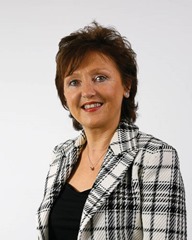Employers for Childcare
 CEO Marie Marin
CEO Marie Marin
email. marie.marin@employersforchildcare.org
Childcare affordability
The issue of childcare affordability has received much media attention over recent months. The introduction of the new Tax Free Childcare Scheme from 2015 is evidence that the Government is taking some steps to address the cost of childcare. In Northern Ireland, the Executive is soon to report on its recent Childcare Strategy consultation which we hope will include measures to address childcare affordability.
Employers For Childcare Charitable Group has been mapping the cost of childcare since 2010. We are very proud of the fact that we conducted the first Childcare Cost Survey for the region and have committed to carrying this out on a yearly basis.
The Childcare Cost Survey 2013 will soon be launched. We will be disseminating questionnaires to both childcare providers and parents, asking them to share with us details of their childcare costs. Last year nearly 4,000 parents and 1,000 childcare providers completed the survey. This year we are seeking to build on our success and I would like to take this opportunity to encourage parents across Northern Ireland to take the time to complete the survey. We also encourage employers and politicians to raise awareness of the survey.
The Childcare Cost Survey results enable us to present to our politicians and relevant government departments a representative sample of the issues pertaining to working parents. Childcare affordability remains a key barrier for parents to be able to access work and to be able to stay in work. For more information on the survey, please visit www.employersforchildcare.org or contact us on our Freephone helpline.
Call free 0800 028 6538





